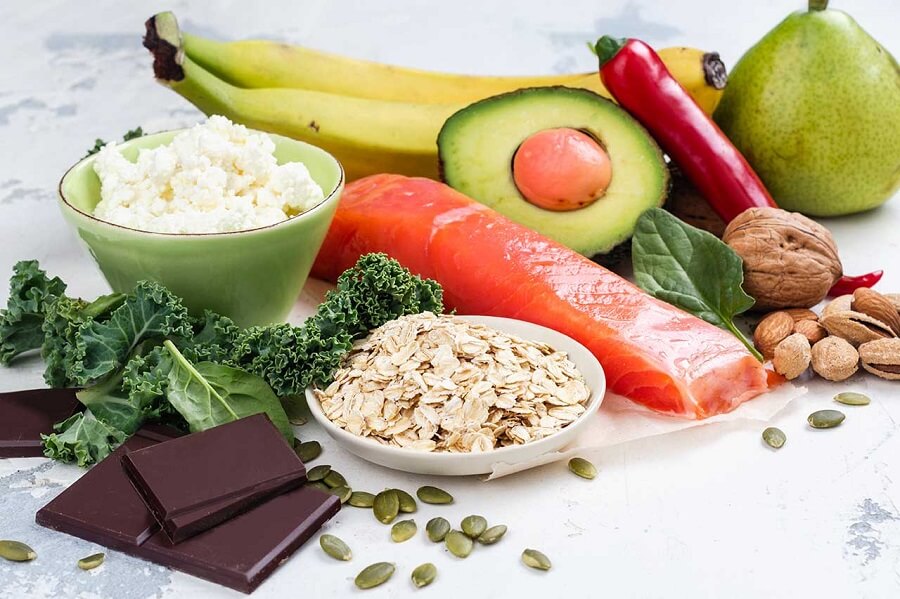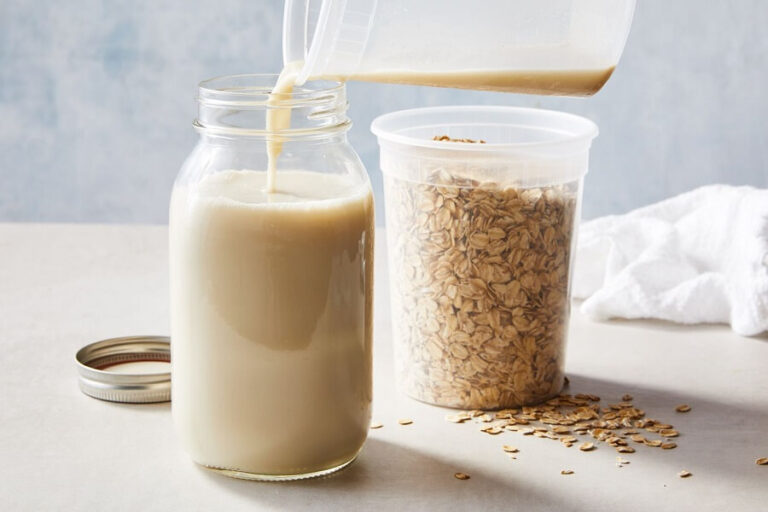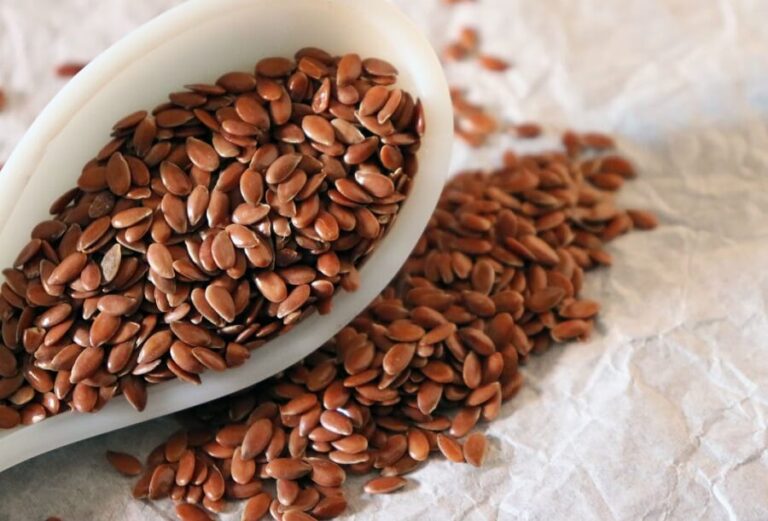The brain is the control center of the body. It is in charge of keeping the heart beating, breathing, moving, feeling, and thinking.
Keeping your brain in optimal health is an excellent idea to improve your well-being.
The foods you eat play an essential role in your brain’s health and help improve specific mental tasks, such as memory and concentration.
This article details the best foods to strengthen the brain.
Foods that help the brain work better
As a general rule, foods with Omega-3 fatty acids and other healthy fats should be part of the diet to strengthen the brain.
Additionally, foods high in antioxidants can help slow memory loss and improve other cognitive functions.
Here are eight examples of foods that help the brain work better.
- Fatty fish
When talking about brain-strengthening foods, fatty fish should be at the top of the list.
These types of fish are salmon, sardines, herring, tuna, and all are rich sources of Omega-3 fatty acids.
About 60% of your brain is fat, and half of this is Omega-3. The brain uses omega-3s to build brain and nerve cells, and these fats are essential for learning and memory. (2)
According to a study, eating foods rich in Omega-3 can delay age-related mental decline and help prevent neurodegenerative diseases like Alzheimer’s. (1)
Another study found that people who ate fatty fish regularly had a more gray matter in their brains. Gray matter contains most nerve cells that control decision-making, memory, and emotions. (3)
Also, not getting enough omega-3s is linked to learning disabilities and depression.
In short, fatty fish is an excellent option for improving brain health. In your country, supplements such as Omega-3 capsules have given similar results if it is difficult to find.
Read more:
- Omega-3 – Benefits How much is in food?
- Omega-3 Capsules – Benefits and Contraindications
- How do they strengthen the immune system?
- Blueberries
Blueberries have several health benefits, including some specifically for your brain.
Blueberries and other dark berries are high in anthocyanins, a group of plant compounds with anti-inflammatory and antioxidant effects.
Antioxidants work against oxidative stress and inflammation caused by cortisol, contributing to brain aging.
Some of the antioxidants in blueberries build up in the brain and help improve communication between brain cells.
Animal studies have shown that blueberries help improve memory and may even delay short-term memory loss.
If you are looking for foods that help your brain work better, include blueberries at some point during the day.
Read more:
- Dried cranberries – Properties
- Cortisol – The stress hormone
- Foods with tryptophan – what are they, and what are they for?
- Dark chocolate
Including dark chocolate in your diet can stimulate the areas of the brain responsible for learning and memory.
Dark chocolate and cocoa are high in brain-stimulating compounds like flavonoids and caffeine. Flavonoids are a type of plant antioxidant.
Studies claim that these compounds can improve memory and help slow age-related mental decline. (4.5)
A systematic study that included more than a thousand people concludes that the regular intake of cocoa flavanols can have a beneficial effect on cognitive function and could help the brain to function better. (6)
Chocolate could also help improve your mood. However, it is unclear why; it could be because it provides tryptophan, one of the amino acids necessary to manufacture serotonin—a hormone related to the mood that affects the brain.
//Read more:
- How to increase serotonin?
- Dark chocolate benefits and properties
- Types of chocolate – which one is better?
- Nuts
Research has shown that eating nuts can strengthen brain health and prevent neural diseases. Walnuts are rich in phytochemicals and polyunsaturated fatty acids and offer potential benefits for brain health. (7)
Various nutrients in nuts, such as healthy fats, antioxidants, and vitamin E, may explain their benefits for brain health.
For example, the polyphenolic compounds found in walnuts reduce oxidation and inflammation in brain cells and improve the connection between neurons and reduce the effects of insoluble toxic proteins.
In addition, nuts are rich in vitamin E. This vitamin protects cell membranes from free radical damage and can help reduce mental decline.
While all nuts are good brain foods, walnuts can have a bonus, as they also provide omega-3 fatty acids.
Read more: Nuts – Are they fattening?
- Kale
Kale has many antioxidant plant compounds. It is also a vibrant food in vitamin K.
Some studies have linked higher vitamin K intake with better memory. (8.9)
This fat-soluble vitamin is essential for forming sphingolipids, a type of fat that is densely packed in brain cells.
Additionally, kale contains several compounds with anti-inflammatory and antioxidant effects, which can help protect the brain against oxidative damage.
Read more: Kale – Properties and benefits
- Chia seeds
Chia seeds contain potent antioxidants and Omega-3s that can help strengthen the brain. They are also an excellent source of magnesium and zinc.
These nutrients are essential for brain health. Zinc is an important mineral for nerve signaling. Magnesium is necessary for learning and memory.
Low zinc and magnesium levels are linked to many neurological diseases, such as migraines, depression, epilepsy, and Alzheimer’s nerve signals.
Since chia seeds are rich in these micronutrients, you can likely strengthen your brain and gain other benefits by adding them to your diet.
Read more: Chia seeds – Properties and benefits
- Pomelo
Grapefruit and other citrus fruits such as oranges, kiwis, and limes are high in vitamin C.
Vitamin C is a crucial nutrient for preventing mental decline and strengthening the brain.
Eating sufficient amounts of foods rich in vitamin C can protect against age-related mental decline and Alzheimer’s disease.
Vitamin C is a powerful antioxidant that helps fight free radicals that can damage brain cells. Additionally, vitamin C prevents and strengthens brain health as you age.
You can also get tremendous vitamin C from bell peppers, guava, kiwi, tomatoes, and strawberries.
Read more: Foods rich in vitamin C – List
- Eggs
Eggs are a good source of nutrients linked to brain health, vitamins B6 and B12, folic acid, and choline.
Choline is an essential micronutrient that your body uses to create acetylcholine, a neurotransmitter that helps regulate mood and memory.
However, many people do not get enough choline from their food.
Eating eggs is an easy way to get choline; egg yolks are one of the most concentrated sources of this nutrient.
In addition, the B vitamins have several functions in brain health. For example, B12 participates in the synthesis of brain chemicals and regulates sugar levels in the brain.
While there is very little direct research on the link between eating eggs and brain health, there is enough data to support the benefits of the nutrients found in eggs in strengthening the brain.
Read more: Eggs – nutrients: carbohydrates, proteins and fats
ABSTRACT
Many foods can help strengthen your brain.
Some foods, like fruits and vegetables, are rich in antioxidants that help protect your brain from the passing of the years.
Others, like nuts and fish, contain nutrients that are good for helping memory and brain development.
To strengthen your brain and improve your neural health, you must strategically include these foods in your diet.







